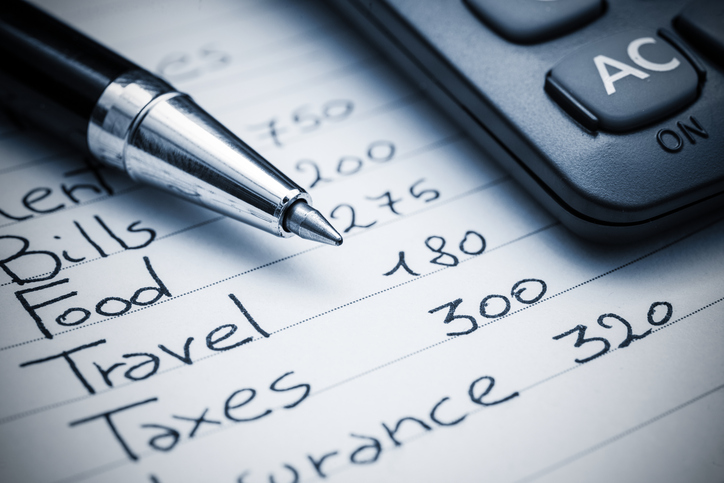Part two of this series dealt with making a budget. So now that you have a budget in place, how do you manage it? That is what budget control is all about, for both variable and fixed expenses.
Fixed Expense Control
At first glance, it may seem that there is no budget control for fixed expenses. However, this is the area that should be tested for future planning.
Consider, for example, the purchase of a vehicle. The easiest way is to have the money in savings and pay cash for it. This is unrealistic for some people and incomprehensible to others. An alternative method is to determine a reasonable payment amount (that will not overly stretch your current budget) and add that into your savings budget for one year before you plan to purchase your vehicle.
The reason for doing this is that your expenses will fluctuate throughout the year. If you base the proposed payment only on your budget for the last couple of months, you may set an amount that is not realistic for other times of the year, like Christmas. You should also take into consideration other expenses that will arise because of this new purchase, such as taxes, insurance, repairs and fuel consumption.
At the end of the year, you can use the money saved as a down payment, or to pay the taxes and licensing on your new vehicle. If, however, you find that your budget cannot handle the payment you had initially set, lower the amount—and you are still ahead. If you buy a vehicle with payments that are too high for your budget, you could lose the vehicle or be tempted to steal from God.
When you know the correct payment amount, you can shop for a vehicle that fits your budget.
Most people do it backward.
They find the vehicle they want and try to make their budget fit the payments.
This principle applies to other types of purchases as well. An item in most people’s fixed budget category is rent or a house payment. If you’re considering buying a house with payments that are higher than what you currently spend on housing, you should subtract your current housing expense from the expected amount and try to save the difference each month for one year.
Variable Expense Control
Now let’s consider budget control for variable expenses. If you budget monthly and wait until the end of the month to total your expenses, you may find that you have gone over budget without realizing it. And then it’s too late. Instead, once a week total your expenses and project what you will spend for the rest of the month. If you are going to be over budget, you need to determine which of the variable monthly expenses will be trimmed to keep you on track.
At first, it may be hard to project expenses, but as you practice you will become more accurate. What you should not do is anticipate favorable projections in the early part of the month. For example, if it looks like you will be $50 under budget in one category, don’t rush out and spend that money. Wait until the end of the month, in case you go over in another category.
A Firm Foundation
To some people, budget control seems very restrictive—even impossible. I believe that sometimes this has to be an act of faith. For many years Gary and I lived on his salary alone while I focused on raising and schooling our children as my career. Some months we barely made it. But never did we lack basic food or shelter. Our finances were tight, but the quality of life we enjoyed together as a family was high. And our kids learned the difference between wants and needs.
In Matt. 7:24-5 Jesus says, “Therefore everyone who hears these words of mine and puts them into practice is like a wise man who built his house on the rock. The rain came down, the streams rose, and the winds blew and beat against that house; yet it did not fall, because it had its foundation on the rock.” If you build a budget that first gives to God what is His, and is according to your income level, then you are building on a firm foundation. And you can count on the grace of God to help you wisely manage your finances.










